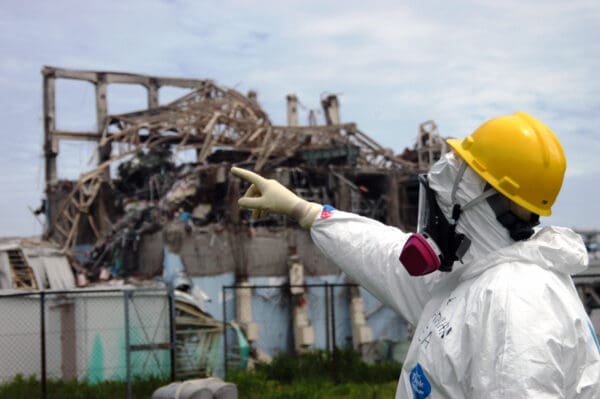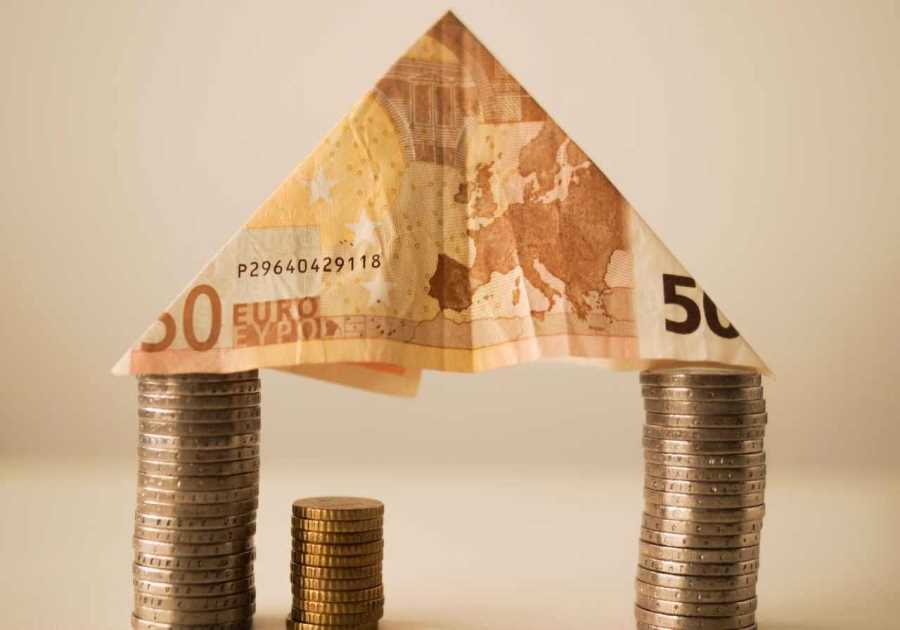It all started in 2011, with a series of apocalyptic events: first came the ‘Great East Japan Earthquake’ with a magnitude of 9,0, that generated a large Tsunami that destroyed the Fukushima nuclear plant, causing three nuclear meltdowns, three hydrogen explosions, and the release of radioactive contamination.
Since then, power plant company Tepco has been pumping in water to cool down the reactors’ fuel rods. In this way, every day the plant produces more contaminated water, which is treated and stored in massive tanks.
That is not a long-term solution, and the Japanese were caught between the devil and the deep blue sea.
Even after treatment, the water still contains high levels of radioactive substances tritium and carbon-14, which are difficult to remove.
Japan’s solution became to dilute this radioactive liquid with more seawater before releasing it back into the Pacific ocean. We are talking about 30,000 tons of treated nuclear wastewater. Not just a drop in the ocean.
Japan insists that the further diluted water is safe, and many scientists seems to agree. The UN’s nuclear watchdog IAEA has also approved the plan.
But China, the biggest buyer of seafood from Japan, has not accepted the assessment, and proceeded to block all such imports, putting the neighbors oceans apart.

Many critics also say that more studies need to be done, call for the release to be halted.
Washington Post reported:
“Chinese customers are calling for boycotts of Japanese products from high-end skin-care creams to everyday household goods in retaliation for the release of treated wastewater from the crippled Fukushima nuclear power plant.
The effort is shaping up to be the largest campaign of state-supported nationalist outrage against Japan in more than a decade and comes at a time of widening divisions between China and U.S.-aligned countries in the region.”
Chinese customers started returning Japanese-made cosmetics and goods after ‘lists of products to be boycotted’ were circulated widely online.
Manufacturers are being forced to declare products ‘radiation-free’, as some buyers brought handheld Geiger counters to test products for radioactivity.
Japanese analysts stated that China believes that ‘scapegoating’ Japan is a useful distraction from its own problems.
“A ban on Japanese seafood on Friday was followed by a campaign of nuisance calls to Japanese businesses and government departments. On Chinese short-video platforms Kuaishou and Douyin, dozens of users uploaded videos of themselves giving whoever answered the phone in Japan an earful about the dangers of releasing the water.
The International Atomic Energy Agency (IAEA), after conducting a two-year review, concluded last month that Japan’s plan meets international safety standards and would have ‘negligible’ radiological impact on people and the environment.”
But the IAEA findings have been widely dismissed in China, and the state media continues to whip up fear.
Environmental groups and residents in Japan and South Korea have also protested the ‘unnecessary risk’.
BBC reported:
“Shortly afterwards, China’s customs office announced that an existing ban on seafood imports from Fukushima and some prefectures would be immediately extended to cover the whole of Japan to ‘protect the health of Chinese consumers’.
The move is calculated to inflict economic damage, and Japan has admitted that businesses will take a ‘significant’ hit. Mainland China and Hong Kong together import more than $1.1bn (£866m) of seafood from Japan every year – making up nearly half of Japan’s seafood exports.”
James DJ Brown, Temple University:
“While Japan’s government is deeply concerned by what it sees as the aggressive actions of the Chinese Communist Party, they understand that it is in their interests to maintain stable relations with their larger neighbor.”
Some observers feel that China will not stick with the ban.
“China’s growing economic difficulties could mean that any ban is relatively brief and narrow, so as to limit the negative impact on Chinese importers and business sentiment.”
WATCH: Japanese Prime Minister Kishida and some ministers eat fish and seafood from Fukushima Prefecture.
Japanese Prime Minister Kishida and some ministers ate fish and seafood from Fukushima Prefecture
But Japan has threatened to take action regarding the sea-food ban.
Reuters reported:
“Japan threatened on Tuesday to take China to the World Trade Organization (WTO) to seek a reversal of Beijing’s ban on all of its seafood imports after the release of treated radioactive water from the stricken Fukushima Daiichi nuclear power plant.
Foreign Minister Yoshimasa Hayashi told reporters that Japan would take ‘necessary action (on China’s aquatic product ban) under various routes including the WTO framework’.
Filing a WTO complaint might become an option if protesting to China through diplomatic routes is ineffective, Economic Security Minister Sanae Takaichi said separately.
The comments came as Japanese businesses and public facilities continued to receive harassment calls from phone numbers with the +86 Chinese country code, with many reporting callers complaining of the Fukushima water release.”
Fukushima local government and public facilities in the prefecture have received about 3,000 harassment calls, leading to ‘radioactive’ relations between the countries.
The post Not Just a Drop in the Ocean: China Bans Sale of Japanese Seafood Over Fukushima Radioactive Water Release Into the Pacific – Tokyo to File Appeal at the World Trade Organization appeared first on The Gateway Pundit.
------------Read More
By: Paul Serran
Title: Not Just a Drop in the Ocean: China Bans Sale of Japanese Seafood Over Fukushima Radioactive Water Release Into the Pacific – Tokyo to File Appeal at the World Trade Organization
Sourced From: www.thegatewaypundit.com/2023/08/not-just-drop-ocean-china-bans-sale-japanese/?utm_source=rss&utm_medium=rss&utm_campaign=not-just-drop-ocean-china-bans-sale-japanese
Published Date: Wed, 30 Aug 2023 13:30:32 +0000
.png)





